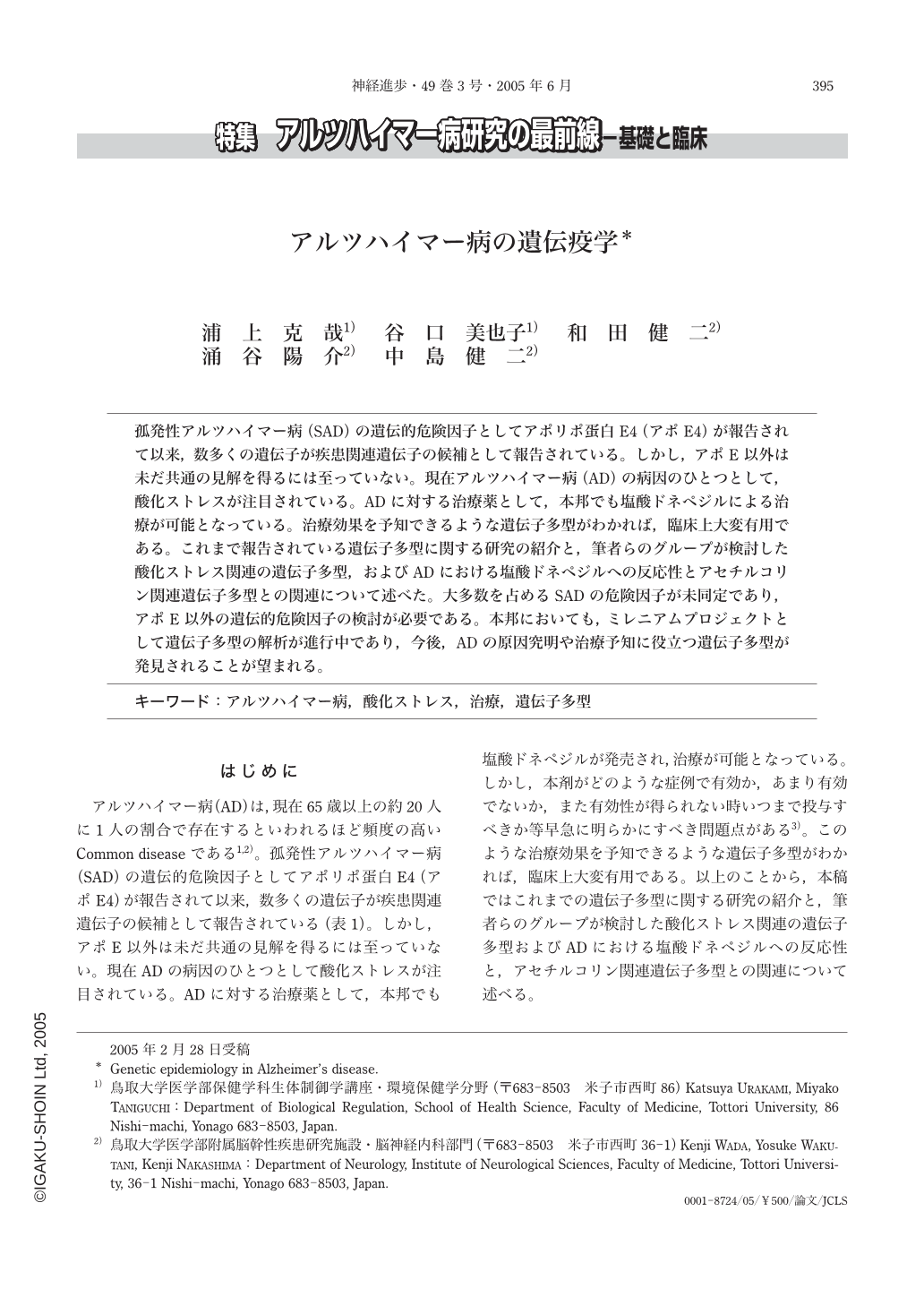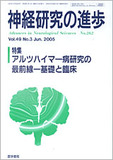Japanese
English
- 有料閲覧
- Abstract 文献概要
- 1ページ目 Look Inside
孤発性アルツハイマー病(SAD)の遺伝的危険因子としてアポリポ蛋白E4(アポE4)が報告されて以来,数多くの遺伝子が疾患関連遺伝子の候補として報告されている。しかし,アポE以外は未だ共通の見解を得るには至っていない。現在アルツハイマー病(AD)の病因のひとつとして,酸化ストレスが注目されている。ADに対する治療薬として,本邦でも塩酸ドネペジルによる治療が可能となっている。治療効果を予知できるような遺伝子多型がわかれば,臨床上大変有用である。これまで報告されている遺伝子多型に関する研究の紹介と,筆者らのグループが検討した酸化ストレス関連の遺伝子多型,およびADにおける塩酸ドネペジルへの反応性とアセチルコリン関連遺伝子多型との関連について述べた。大多数を占めるSADの危険因子が未同定であり,アポE以外の遺伝的危険因子の検討が必要である。本邦においても,ミレニアムプロジェクトとして遺伝子多型の解析が進行中であり,今後,ADの原因究明や治療予知に役立つ遺伝子多型が発見されることが望まれる。
Alzheimer's disease(AD)recently exists 1 per 20 aged over 65 elderly people in Japan. Therefore, we consider AD as a common disease. Since apolipoprotein E(apo E)reported as a genetic risk factor for sporadic AD, many candidate genes have been examined. However, no candidate genes except for apo E did not reach to definite conclusion. Now, oxidative stress has been focused as a pathogenic factor for AD. Donepezil hydrochloride is available in Japan and it is possible to treat AD patients. However, it is very difficult to predict responder and non-responder. Therefore, it is very useful to predict efficacy for this drug using genetic polymorphism. We introduced previously reported genetic polymorphism for AD and also introduced our data about genetic polymorphism related to oxidative stress and acetylcholine. As genetic polymorphism except for apo E has not yet found, it is necessary to identify new candidate gene for AD in the future.

Copyright © 2005, Igaku-Shoin Ltd. All rights reserved.


